Tooth enamel is the hardest substance in the human body, stronger even than your bones. But as resistant as enamel is, it isn’t unbreakable. Many things — from being struck forcefully in the mouth, falling on your teeth, or biting down on something too hard — can cause your enamel to chip or crack, especially if your tooth is already weakened by decay.
Adult teeth never grow back if they’re broken or chipped. And if your tooth seems to retain its function and doesn’t cause you much pain, you may think that a little chip isn’t a big deal. Unfortunately, that’s not the case. Chipped teeth can have a number of consequences, from aesthetic concerns to leaving a bad taste in your mouth and even infection.
The good news is that repairing a tooth that has been cracked or chipped can be a simple and painless procedure, depending on the extent of the damage. In fact, even if your tooth has been badly broken, your dentist can fix it using advanced techniques and materials that will have it looking and functioning as good as new.
In this post, we’ll guide you through the steps to take if you have a chipped tooth, from immediate first aid to the treatments available at the dentist’s office. Whether it’s a minor chip or a big crack, knowing how to handle this situation can make all the difference in preserving your smile and preventing further complications.
Common Causes of Broken or Chipped Teeth
Teeth can break, crack, or chip due to a variety of reasons, often when you least expect it. Here are some of the most common causes:
- Trauma: Accidents such as a blow to the face, sports injuries, or falls can result in a chipped or broken tooth.
- Clenching or Grinding: Frequent grinding (bruxism) or clenching your teeth, often during sleep, can wear teeth down and make them more susceptible to chipping. If you wake up feeling tension around your face and head, struggle with morning headaches, or have flattened or loose teeth, schedule an appointment with your dentist to see if you suffer from bruxism.
- Age: As we age, our teeth naturally wear down and become more brittle, increasing the likelihood of chipping or breaking.
- Piercings: Oral piercings, such as tongue or lip rings, can knock against teeth and cause chips or cracks over time.
- Old or Improperly Sized Fillings: Worn-out fillings or ones that aren’t properly fitted can weaken a tooth’s structure, making it more prone to damage.
- Biting on Hard Objects: Chewing on hard items like ice, hard candy, or pens can put excessive stress on your teeth, potentially leading to chips.
- Poor Dental Hygiene: Decay and cavities weaken teeth, making them more likely to break.
What To Do if You Chip Your Tooth
Breaking or chipping a tooth can be an alarming experience. If you notice that a piece of tooth broke off, you need to act quickly to minimize damage and discomfort. Here are the steps you should follow:
- Don’t Panic: Stay calm and try to keep your composure. Panicking can make the situation seem worse than it actually is.
- Rinse Your Mouth: Gently rinse your mouth with warm water to clean the area and remove any debris.
- Stop the Bleeding: If there’s any bleeding, apply gentle pressure with a clean cloth or gauze until it stops.
- Recover the Tooth Fragment: If possible, find and save any pieces of the broken tooth. Keep them moist in a glass of milk, water, or saline solution.
- Protect the Area: Apply dental wax or over-the-counter temporary bonding materials to cover the sharp edges of the chipped tooth and keep it from getting worse or cutting your mouth.
- Manage Pain: If you’re experiencing pain, take an over-the-counter pain reliever such as ibuprofen to help manage the discomfort.
- Contact Your Dentist: Call your dentist immediately for a same-day appointment, if possible. Quick, professional care can prevent further damage and infection.
How Does a Dentist Fix a Broken Tooth?
While there isn’t one single approach for how to fix a chipped tooth, dentists have multiple methods for mending chips and cracks. Treatments range from simple procedures like bonding and contouring for minor chips to more extensive interventions such as crowns and dental implants for severe breaks.
Bonding
Teeth bonding involves applying a tooth-colored resin to the damaged area of the tooth, which your dentist will then shape and harden with a special light. This procedure is a quick, cost-effective solution for small chips and cracks.
Veneers
Veneers are wafer-thin shells made of porcelain or composite resin that cover the front surface of teeth. This treatment is commonly used for more extensive chips or cracks, particularly on front teeth, or to fix imperfections such as deep stains, odd shapes, and small gaps.
Crowns
A crown is a tooth-shaped cover placed over a damaged tooth to restore its shape, size, and strength. Crowns are typically used when a large portion of the tooth is broken or severely chipped. They provide excellent protection and durability, making them great options for both front and back teeth needing significant restoration.
Fillings
Fillings are used to repair chipped or broken back teeth, particularly molars. To repair a tooth with fillings, your dentist will first carefully clean the damaged area and then apply filling material such as composite resin or amalgam to restore the tooth’s shape and function.
Contouring
Contouring, also known as enameloplasty, is a quick cosmetic procedure where your dentist buffs or smooths out small chips or rough edges on a tooth or teeth. This method is ideal for minor imperfections and can improve the appearance of the teeth with minimal pain and no need for anesthesia.
Dental Implants
A dental implant is a type of tooth restoration where titanium posts are surgically inserted into the jawbone to replace the root of a severely damaged tooth. Once the implant is in place, a crown is attached to restore the tooth’s appearance and function. Implants are typically a last resort for broken teeth and are typically used only when a tooth is too damaged to be repaired with other methods.
Get Compassionate Dental Care in Beverly Hills
When you chip or break a tooth, it’s important to seek care from a dentist who not only has the expertise to fix the damage but also understands the importance of treating patients with compassion, patience, and dignity. At MR Dental Aesthetics, we believe your dentist should always prioritize your comfort and well-being, addressing any pain or discomfort before restoring your smile.
At our Beverly Hills cosmetic dental practice, Dr. Rashti is committed to delivering attentive, personalized care that ensures you leave our office feeling better and more confident than when you arrived. We welcome all patients and work hard to make sure your experience is relaxed and positive from start to finish.
Contact us today to learn more about MR Dental Aesthetics, or schedule your appointment today.
Fixing Broken Teeth FAQs
Is it okay to leave a chipped tooth?
No, it isn’t okay to leave a chipped tooth untreated. Even if it doesn’t hurt, a chipped tooth can lead to more damage, increased sensitivity, decay, or infection. It’s important to see a dentist as soon as possible to evaluate and repair the damage.
Is fixing a chipped tooth expensive?
The cost of fixing a chipped tooth often varies depending on the extent of the damage and the treatment required. Simple procedures like bonding can be relatively inexpensive, while more complex treatments like veneers, crowns, or implants might be more costly.
How do dentists fix a chipped tooth with veneers?
Veneers are a great way to improve minor imperfections on teeth. To fix a tooth with veneers, your dentist will first prepare the tooth surface and then glue a thin, custom-made shell (veneer) of porcelain or composite resin to the front of the tooth. This covers the chip and restores the tooth’s appearance and function.
How to fix a chipped tooth with a denture?
It actually isn’t possible to fix a chip with a denture. Dentures are designed to replace missing teeth entirely, not to repair existing ones. For a chipped tooth, your dentist will use other methods, like bonding, veneers, or crowns.
Should I put a broken tooth in milk?
Putting a tooth in milk is sometimes recommended for intact teeth that are completely knocked out, since fluids like milk, saline solution, water, or even saliva, can help preserve the tooth until you can get to a dentist. Similarly, putting a part of a broken tooth in milk might help preserve it, but it doesn’t guarantee that your dentist will be able to glue it back on if the damage is too extensive.
Can a chipped tooth be fixed in one day?
Yes, sometimes your dentist can fix a chipped tooth in one day, especially if the damage is minor. Procedures like bonding, contouring, and even some veneers can often be completed in a single visit.
Do chipped teeth stop hurting?
A chipped tooth might stop hurting once the initial trauma subsides, but this doesn’t mean the problem is resolved. The underlying damage can still cause issues like sensitivity, infection, or further breakage, so it’s important to have a dentist evaluate and treat the chipped tooth, even if the pain goes away.
How to fix a cracked tooth at home?
You can’t (and shouldn’t) fix a cracked tooth at home. However, you can take steps to manage the situation until you see a dentist. Rinse your mouth with warm water, apply a cold compress to reduce swelling, and take over-the-counter pain relievers to manage pain. Avoid chewing on the affected side, and cover any sharp edges with dental wax, if necessary.

